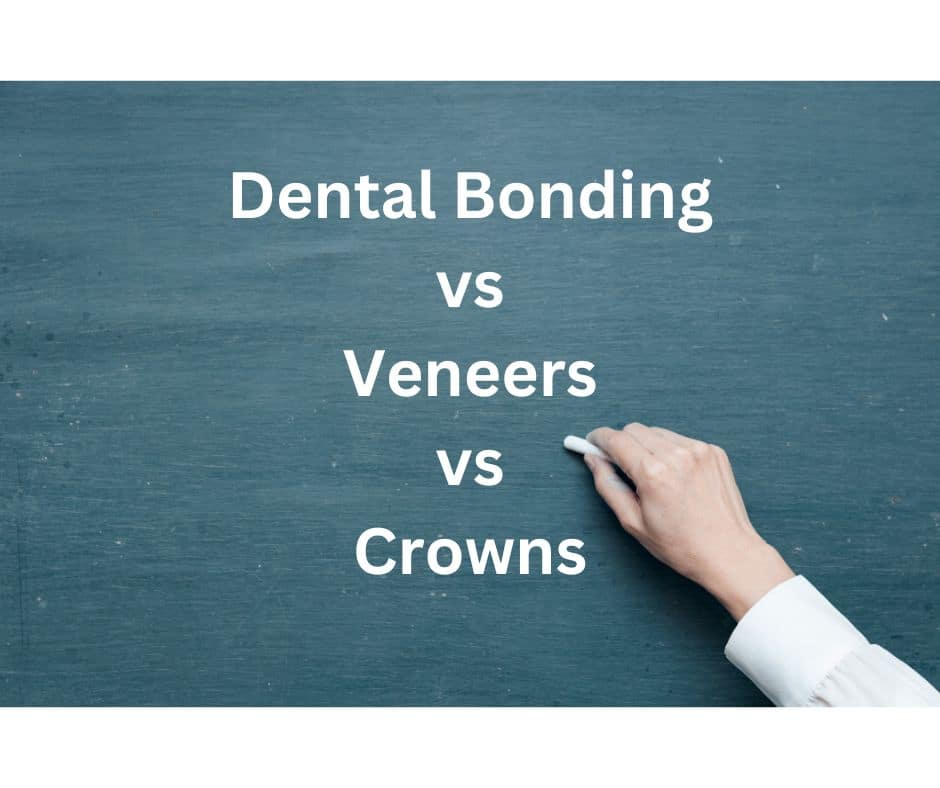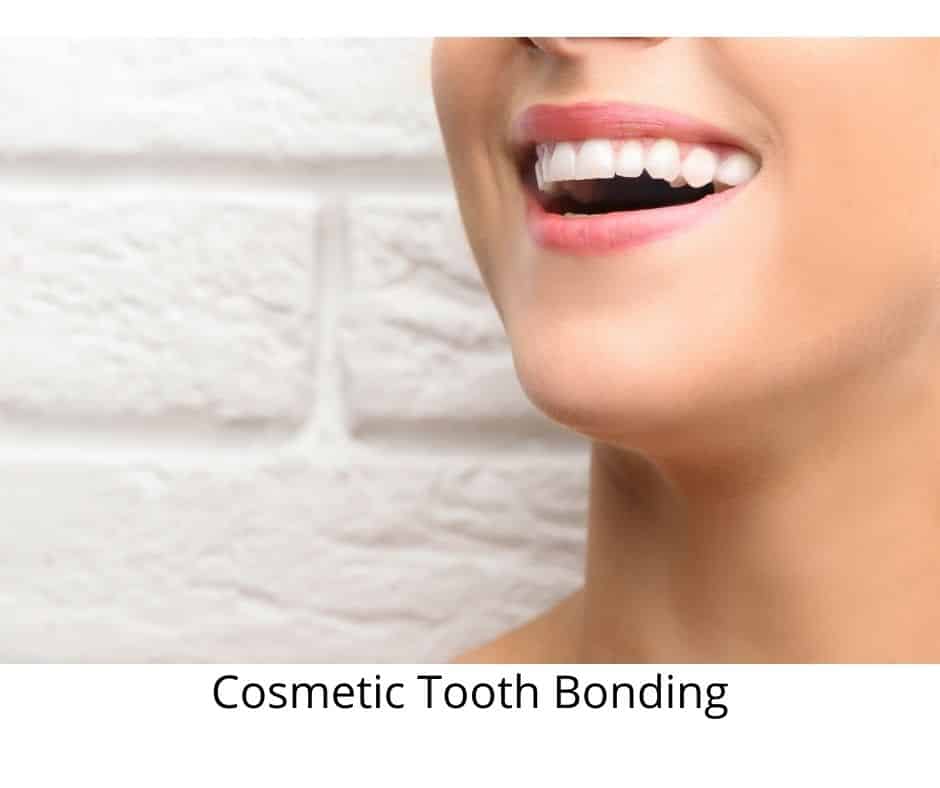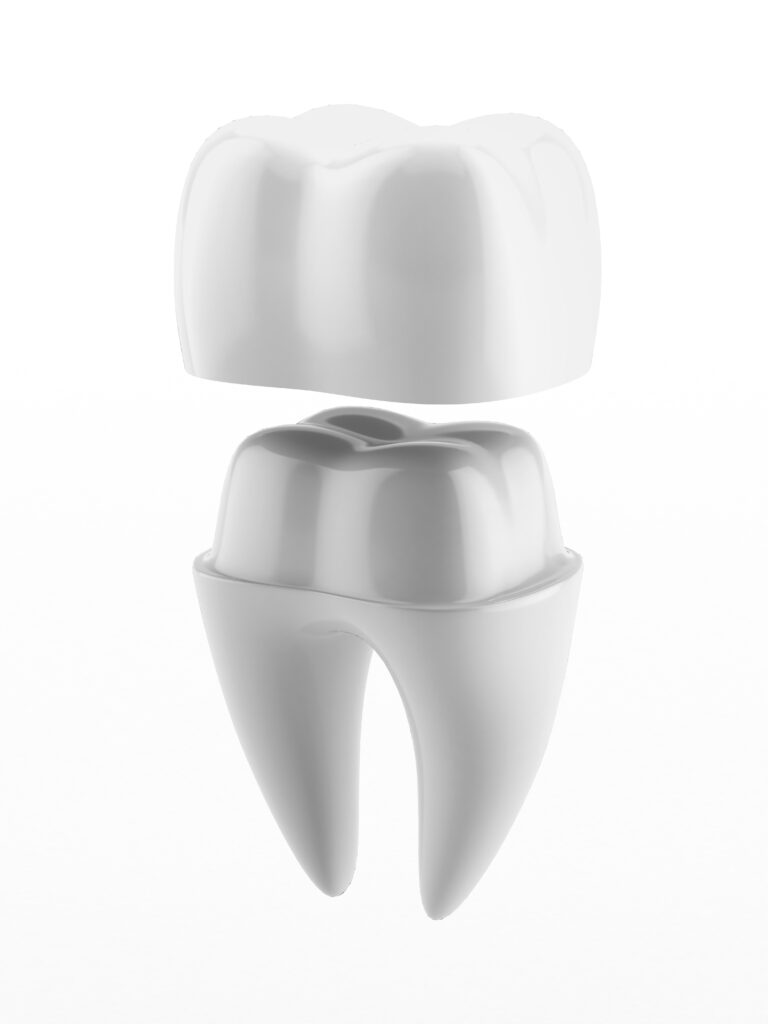Dental Bonding vs Veneers vs Crowns for cracked front teeth near Roswell, Georgia

Dental Bonding

When is Dental Bonding Appropriate?
Dental bonding is ideal for minor cracks, chips, or superficial damage that doesn’t compromise the structural integrity of the tooth. It is often used for cosmetic fixes or small fractures that only affect the enamel or outer layer of the tooth. This treatment is quick, minimally invasive, and suitable for patients who want an immediate solution for small cosmetic flaws in their front teeth.
Advantages of Dental Bonding:
- Cost-effective: Bonding is typically more affordable than veneers or crowns.
- Quick procedure: The treatment can often be completed in a single dental visit.
- Minimally invasive: Little to no tooth enamel needs to be removed, preserving most of the natural tooth.
- Aesthetic improvement: Bonding material can be color-matched to blend with the surrounding teeth, making it virtually unnoticeable.
Limitations of Dental Bonding:
- Durability: Bonding material is not as strong as porcelain or ceramic, so it is more prone to chipping or staining over time.
- Shorter lifespan: Dental bonding usually lasts 3 to 10 years, which is shorter compared to veneers or crowns.
- Not for severe damage: Bonding is not suitable for larger or deeper cracks that affect the inner structure of the tooth.
Porcelain Veneers

When are Porcelain Veneers Appropriate?
Porcelain veneers are a good option for patients with moderate cracks or cosmetic damage that affects the appearance of the front teeth. Veneers are thin, custom-made shells that cover the front surface of the tooth, offering a highly aesthetic and long-lasting solution. They are ideal for patients who want to improve both the appearance and function of their cracked front teeth, especially when the crack is visible or causes cosmetic concerns.
Advantages of Porcelain Veneers:
- Aesthetic appeal: Veneers offer a natural-looking, tooth-colored result that mimics the translucency and shine of real teeth.
- Stain-resistant: Porcelain veneers resist stains better than bonding materials, making them a more durable option for maintaining a bright smile.
- Long-lasting: Veneers can last 10 to 15 years or longer with proper care, providing a longer-term solution than bonding.
- Customizable: Each veneer is custom-made to fit the tooth perfectly, ensuring a seamless appearance.
Limitations of Porcelain Veneers:
- More invasive: A small amount of enamel must be removed from the tooth surface to place the veneer, making the process irreversible.
- Higher cost: Veneers are more expensive than dental bonding due to the materials and lab work involved.
- Risk of damage: While durable, veneers can still chip or crack if subjected to excessive force, such as grinding or biting hard objects.
- Not suitable for deep cracks: Veneers only cover the front surface of the tooth, so they are not appropriate for cases where the crack extends deeper into the tooth structure.
Dental Crowns

When are Dental Crowns Appropriate?
Dental crowns are the best option for severely cracked front teeth, especially when the crack compromises the tooth’s strength or extends into the inner layers, such as the dentin or pulp. Crowns completely cover the tooth, providing protection and restoring its function. Crowns are often recommended after root canal treatment or when there is a risk of the tooth breaking further due to structural weakness.
Advantages of Dental Crowns:
- Strength and protection: Crowns provide full coverage for the tooth, reinforcing it and protecting it from further damage.
- Long-lasting: Crowns can last 10 to 20 years or more, making them one of the most durable solutions for cracked teeth.
- Custom-made for a natural appearance: Like veneers, crowns are custom-made and can be color-matched to the patient’s natural teeth.
- Protects severely damaged teeth: Crowns are suitable for teeth that have undergone significant trauma or decay, as they provide maximum protection.
Limitations of Dental Crowns:
- More invasive: A significant amount of tooth structure must be removed to accommodate the crown, making this a more invasive treatment than bonding or veneers.
- Higher cost: Crowns are more expensive than bonding and veneers due to the materials, fabrication process, and complexity of the procedure.
- Potential for future dental work: If the underlying tooth decays or is damaged further, additional treatments may be required, such as replacing the crown or performing a root canal.
Choosing the right Treatment for a cracked tooth near Roswell, Georgia
The appropriate treatment for a cracked front tooth depends on several factors, including the severity of the crack, the patient’s aesthetic goals, and the overall health of the tooth.
- Dental bonding is ideal for minor cosmetic cracks and patients seeking a quick, affordable solution. However, it is not as durable as other options and may need to be replaced more frequently.
- Porcelain veneers offer a long-lasting, aesthetically pleasing option for moderate cracks, especially when the front tooth’s appearance is a primary concern. They provide excellent aesthetics but require enamel removal and come at a higher cost.
- Dental crowns provide the most protection for severely cracked teeth, especially when the tooth’s structure is compromised. While crowns are more invasive and expensive, they offer long-term durability and are ideal for protecting a tooth at risk of further damage.
You should consult with a skilled and experienced dentist near you in Roswell, GA to determine the most suitable treatment option, as each case is unique. The dentist will evaluate the extent of the crack and recommend the best approach to restore both the function and appearance of the tooth while considering you long-term oral health.
